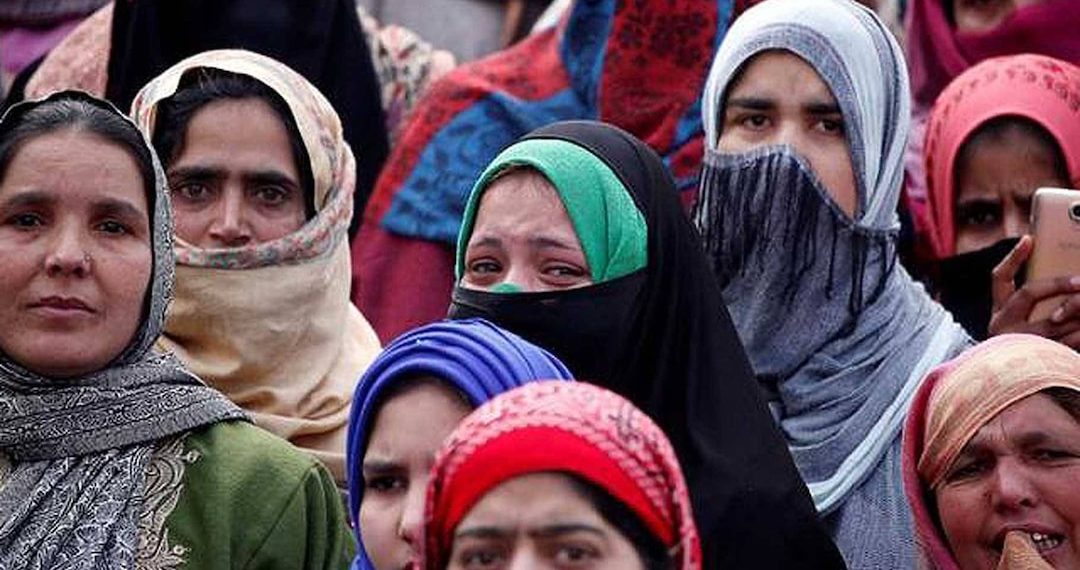Women’s empowerment is crucial for the overall growth and development of any society. In the state of Jammu and Kashmir, women have played a significant role in shaping its culture and traditions. However, due to various societal and cultural factors, women in Jammu and Kashmir have not been able to fully participate in economic, social, and political activities. Therefore, women’s empowerment in Jammu and Kashmir is a critical issue that needs to be addressed. The state of Jammu and Kashmir has been grappling with various social and cultural challenges that have hindered women’s empowerment. One of the significant challenges is gender inequality, which has led to women being denied access to education, healthcare, and job opportunities. Women have traditionally been relegated to household chores and childcare, while men have been given more importance in decision-making and public life. However, this trend is slowly changing, and women are now being given more opportunities to participate in various fields. Women in Jammu and Kashmir face high levels of violence and insecurity, including domestic violence, sexual harassment, and conflict-related violence. This hinders their ability to participate fully in public life and threatens their safety and security. Women in Jammu and Kashmir are underrepresented in political decision-making processes, with limited opportunities to participate in governance and policymaking. Access to education is limited for girls and women, especially in rural areas. This is due to a lack of schools and educational infrastructure, poverty, and cultural norms that prioritize boys’ education.
One of the key steps towards women’s empowerment in Jammu and Kashmir is providing access to education. However, the education system in Jammu and Kashmir has faced many challenges, including a lack of infrastructure, insufficient resources, and limited opportunities for higher education. To address these issues, the government has launched several initiatives aimed at improving the education system, especially for girls. These initiatives include scholarships, free education, and providing transport facilities to girls. Education empowers women with knowledge, skills, and confidence, enabling them to make important decisions for themselves and their families. Education equips women with the necessary skills to participate in economic activities and become financially independent. Education can improve women’s health outcomes and wellbeing. Educated women are more likely to make healthier lifestyle choices and access healthcare services, reducing maternal and child mortality rates. Education can help break down gender-based stereotypes and biases that limit women’s opportunities. Educated women are better equipped to challenge gender inequality and advocate for their rights. Awareness campaigns can help break down gender-based stereotypes and biases that limit women’s opportunities. This can be done by promoting gender equality in schools, communities, and workplaces, highlighting the contributions of women to society, and celebrating their achievements.
Another crucial factor in women’s empowerment is economic independence. Women in Jammu and Kashmir have not been able to participate fully in economic activities due to various reasons, including limited job opportunities, lack of skills, and cultural norms. However, the government has taken several steps to address this issue, including promoting entrepreneurship among women, providing training and skill development programs, and creating job opportunities in various sectors. Political empowerment is another significant aspect of women’s empowerment in Jammu and Kashmir. Women’s participation in politics is essential for ensuring their rights are protected and their voices are heard. However, women’s participation in politics has been limited in Jammu and Kashmir due to various factors, including social norms and lack of representation. To address this issue, the government has introduced reservations for women in local governance bodies, ensuring that women have an equal say in decision-making. Providing skill development and entrepreneurship opportunities for women can help them become economically independent. The government can provide training and financial assistance to women entrepreneurs, create job opportunities in various sectors, and promote women-led businesses.
The government of Jammu and Kashmir has launched several schemes and programs aimed at promoting women’s empowerment in the region. This scheme is aimed at promoting the education of the girl child and improving their status in society. The scheme provides financial assistance to parents for the education of their girl child. This scheme is aimed at addressing the declining sex ratio and promoting the education of the girl child. It aims to sensitize communities to the importance of girls’ education and empowerment. This scheme is aimed at empowering women in rural areas by providing them with skill development training and creating job opportunities. It aims to promote women’s entrepreneurship and financial inclusion. This scheme aims to empower rural women by providing them with information, support, and training. It aims to create a network of women’s groups that can work together to promote women’s rights and empowerment. This scheme aims to provide support to women affected by violence, including domestic violence, sexual assault, and harassment. It provides legal, medical, and psychological support to women and aims to create a safe and supportive environment for them.
It is very clear that women’s empowerment in Jammu and Kashmir is crucial for the overall development of the region. Education of women in Jammu and Kashmir is crucial for individual and societal development. By investing in women’s education, we can promote gender equality, improve health outcomes, stimulate economic growth, and create more inclusive and prosperous societies. While there are still many challenges to overcome, the government has taken several steps to ensure women’s participation in various fields, including education, economy, and politics. With continued efforts and a collective approach, we can ensure that women in Jammu and Kashmir have equal opportunities and rights, paving the way for a more inclusive and prosperous society.


